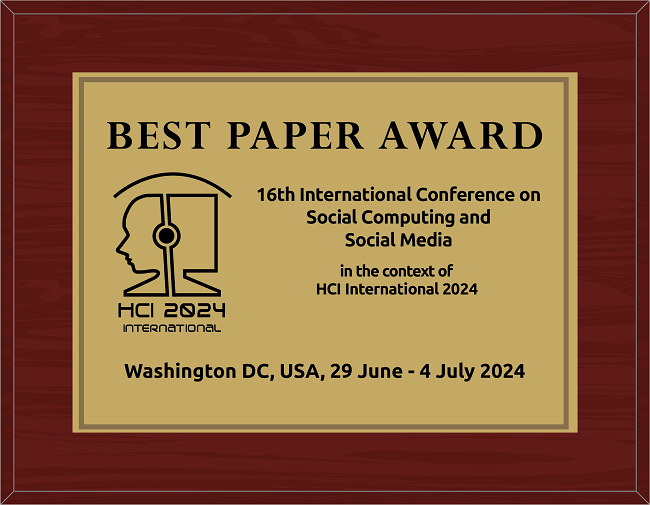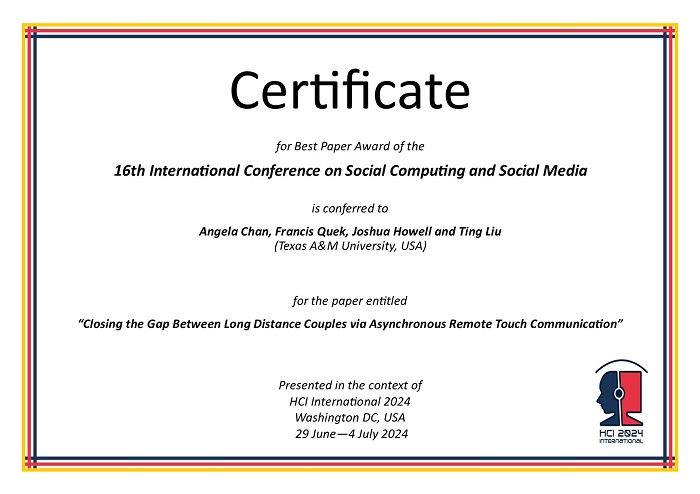
The Best Paper Award of the 16th International Conference on Social Computing and Social Media
has been conferred to
Angela Chan, Francis Quek, Joshua Howell and Ting Liu
(Texas A&M University, USA)
for the paper entitled
"Closing the Gap Between Long Distance Couples via Asynchronous Remote Touch Communication"

Angela Chan
(presenter)

Best Paper Award for the 16th International Conference on Social Computing and Social Media, in the context of HCI International 2024, Washington DC, USA, 29 June - 4 July 2024

Certificate for Best Paper Award of the 16th International Conference on Social Computing and Social Media presented in the context of HCI International 2024, Washington DC, USA, 29 June - 4 July 2024
Paper Abstract
"Remote touch, like natural touch, is ambiguous and can convey a range of affective effects. Prior research demonstrated that remote touch during emotionally tense conversations reduced emotional arousal. This study investigates how remote touch impacts affective experience of positive messages between long-distance couples. Participants interacted asynchronously through paired devices that could transmit various degrees of touch pressure. Participants sent video/audio messages of pleasant memories to their partners in which they could embed touches. Their partners can receive the touch-embedded recordings while wearing a touch device that replays the touches. This study compared the affective response of the recipient under four conditions: video with and without touch, and audio with and without touch. We measured affect through electrodermal recordings and facial expression analysis. Results revealed enhanced affective response and a greater preference in communication when remote touch is used. This study can inform the design and use of affective interactive devices in telecommunications and media settings."
The full paper is available through SpringerLink, provided that you have proper access rights.